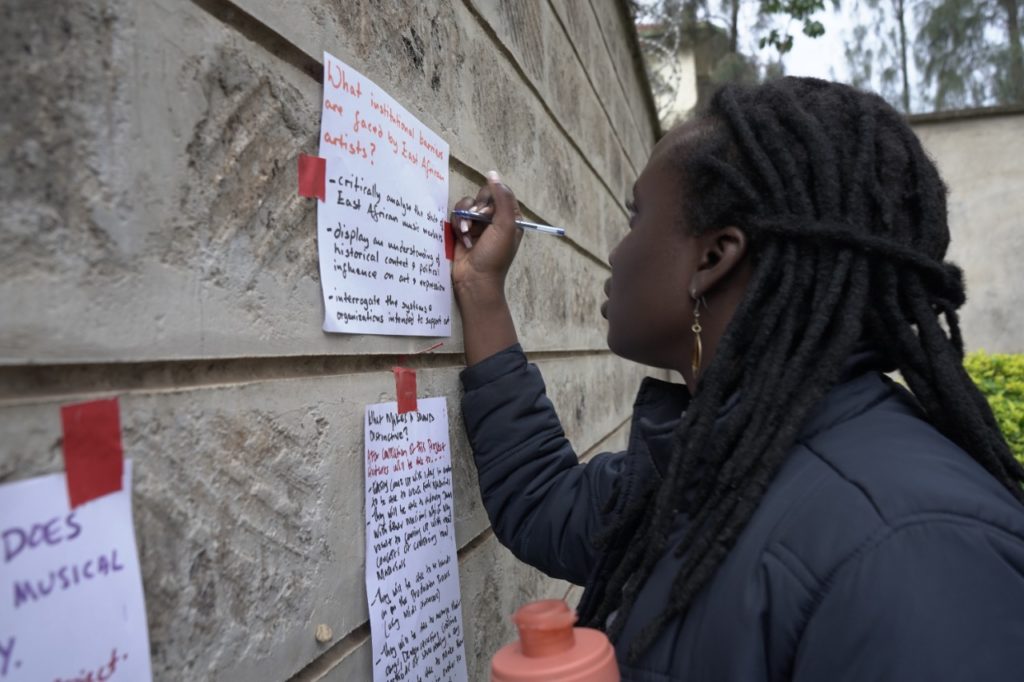SEMA
TRAIN THE TRAINER [TTT]
Kisumu
APPLICATIONS CLOSED
KUJISAJILI KUMEFUGWA
The Train the Trainer course by SEMA equips music practitioners (music producers, DJs and
instrumentalists) to become educators.
Through exploring progressive pedagogical methods, TTT shall imbue students with the necessary skills
to lead and inspire, engage with policy in the industry, and take care of the wellness and wellbeing of themselves, their future students and their community.

TTT KISUMU - COURSE CONTENT
SEMA’s Train the Trainer (TTT) course covers the following topics:
Theoretical foundations of a music innovation hub
Introduction to the foundations of Project Based Learning
Teaching methodologies
Classroom management
Student assessment & feedback
Communication and leadership skills
Santuri DNA
Wellness and wellbeing
ADDITIONAL LEARNINGS
In TTT you will also learn how to:
- Develop an understanding of the principles of PBL and how they apply to music education
- How to design and deliver effective training sessions that are engaging and interactive
- Assessing students needs and catering to them
- Constructive feedback skills
- Integrate relevant digital tools into music instruction
- How to remain a ‘teaching student’
This TTT Kisumu course is sponsored by Sanara.
TTT KISUMU - DATES & LOCATION
Friday, November 22nd, 2024 to Friday, December 20th, 2024
Ijumaa, Novemba 22, 2024 hadi Ijumaa, Desemba 20, 2024
Lake Basin Mall, Mamboleo Junction, Kisumu County, Kenya
10 am - 2 pm
Mondays, Tuesdays, Thursdays & Fridays
APPLICATIONS CLOSED
KUJISAJILI KUMEFUNGWA
SCHOLARSHIPS AVAILABLE
SEMA in Sanara
SEMA is dedicated to the upskilling of music practitioners, ensuring they can build vibrant, self-sustained livelihoods. With a commitment to intersectional inclusion, SEMA seeks to
create opportunities for individuals from diverse backgrounds, ensuring that students have
access to the resources and support they need.
By employing a learning-by-doing pedagogical approach, SEMA will play a crucial role in the Sanara program skilling for work, while fostering empowered and skilled audio technicians across the region.
About Sanara
exciting, inclusive program designed for young women and men in Kenya’s creative and
cultural industries aims to enable access to dignified and fulfilling work.
In partnership with Mastercard Foundation, the consortium of
HEVA, SNDBX, Baraza Media Lab and GoDown Arts Center,
have launched this 3-year program to offer opportunities for financing,
skilling programs and infrastructure, and the adoption of
sustainable practices that advance safer working environments.
For more information visit:
hevafund.com/sanara